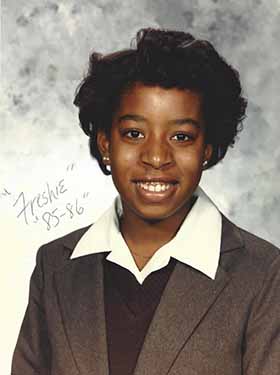This is the first of the Black Lives Matter and Activism: Responding to Inequity in Higher Education blogs series that reflect on equity, the current racial climate, and how higher education institutions are a microcosm of today’s racially tense times.
An article by Timothy Pratt from the Hechinger Report featured on the PBS News Hour titled, “Historically Black Colleges See a Spike in Enrollment from Racial Unrest” caught my eye. However, the headline was not surprising. It actually made me reflect on my high school years. I attended a predominately white institution (PWI) which was an all-girls Catholic school located in a community known to have a long history of racially motivated incidents and intolerance during and through the mid to late 1980s. Barely 4% of enrolled students were Black at my high school. I recall freshman year when our principal said to a group of us Black kids that it was a banner year -- “we have so many of you.” The “so many of you” she referenced were 15 Black girls out of roughly 350 new students. Between freshman to junior year, I could count past one hand how many times I was called the N-word, was flashed/mooned, racially profiled by some of the teachers, and had heighten anxiety relative to safety as there were no buses that ran outside of the school by 6:00 pm.
It was during my junior year of high school when I thought if I am going to feel a sense of belonging, than I should attend a historically black college or university (HBCU). While touring Howard University and Hampton University, I felt a sense of pride, connectedness, cultural congruency that was organic and unexplainable. However, our family could not afford for me to attend an out-of-state or private college or university. Therefore, like the majority of Black collegians whether enrolled in a two- or four-year institution of higher learning, I attended a public PWI.
With all of the social unrest and racial division, it is not shocking that Black students would increasingly seek an HBCU environment. It is not that being Black is monolithic or that HBCUs are exempt from racialized realities. Consider the sign of the times, since their origins and particularly at this moment in time, being Black at an HBCU does not discount, misunderstand or demand an explanation for why Black Lives Matter. The uptick in Black students enrolling at colleges that were earmarked to advance equitable outcomes specifically for Black students bodes the promise of experiencing less racial battle fatigue, being seen and not overlooked, represents moving from the margins and feeling that perhaps I actually do MATTER.
